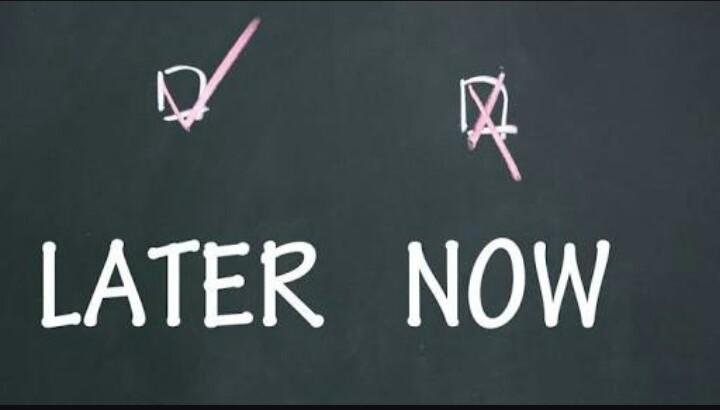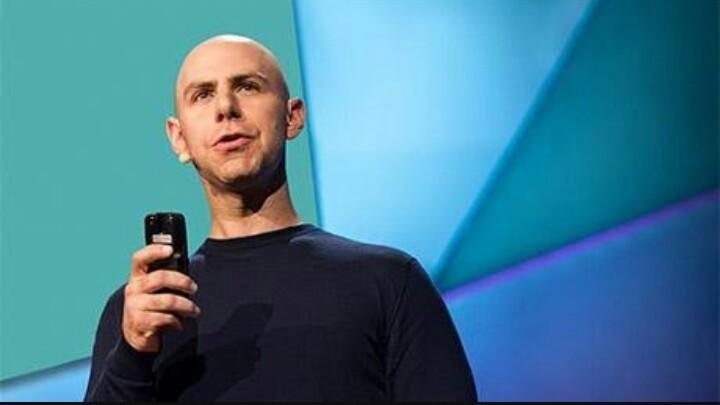
Procrastinating makes you more creative.
–Prof. Adam Grant.
Alright I know, you might be wondering why anyone would seriously say that. And you could almost vouch that the photo above is incorrect. Right? Well, let me explain.
So, let's start again.
Procrastination as we know it, has had a bad wrap over the years and have often been touted as a vice to productivity and the thief of time, which is very correct. It is the putting away of an important task for something less important or totally irrelevant. It is often caused by distractions or sheer laziness.
It is plain hideous! Why are we even discussing it? Can any good thing come out of something so stigmatized?
Direct answer? Yes!
Procrastination is dangerous, but it can be a great tool for creativity. Studies have shown that the most creative people are procrastinators, and the explanation for this is rather simple; Most often than not, the most original ideas aren't the first ones we come up with, and they know that.

In his TED talk titled The surprising habits of original thinkers held in Vancouver 2016, Prof. Grant Adam, (a professor of management and psychology at the Wharton School of the University of Pennsylvania) talked about how moderate procrastination in some ways, sparks creativity and ignites the flame for new ideas and products.
According to this talk, To arrive at something truly unique, you always need the slow and sometimes frustrating ingredient of time. This doesn't imply that you do nothing at all, but that you avoid the urge or haste to take ahold of your first ideas and get started immediately. Sure, you would get something done obviously, but you may not get much going for you in terms of creativity.
However, if you doubt those ideas a bit, toss it around, and give it time while you think of all the possibilities of a better alternative, you could arrive at something more creative in the end.

Don't misunderstand, I'm not preaching self doubt and laziness. I'm more or less referring to the approach of spending quality time on the drawing board, questioning ideas and trying to improve on them before building a masterpiece.
This has a gray area though, On one end, it's sheer laziness and on the other end, it's easy to think you need a perfect idea or have all of the stars align before you make a move. I really wouldn't recommend being on any of the extremes because i think productivity is also important and that every great idea started from the floor and gradually built it's way up. So, there.
Sometimes, we feel guilty for putting off impending tasks. That's normal. However, new research has revealed we may not need to feel so shameful, seeing just how much creative we could possibly become if we stick at it. So, instead of saying "I'm crap", you could say "the first few ideas are always crap"** advised Professor Adam Grant in his Ted speech.
Hence, it's safe to think of moderate procrastination as an incubator of original ideas.*
On Original ideas
A lot of original thinkers and inventors were procrastinators. Take for example Archimedes, when he was asked to determine if the blacksmith had kept aside some of the gold that was to be used in making a crown for the king. Now, we don't have an idea on how long he'd been working on getting the facts, but chances are that if he were an "obsessive workaholic," he probably wouldn't have had the time to simply sit in his bath and think. But WHAM! that's where the ideas hit him! Right there in his overflowing bathroom, Archimedes wondered if he could use the concept of mass and density displacing equal volumes of water to determine the mass of the crown. Alas! he discovered and propounded the laws of flotation and the Archimedes principle.
So long as you're delaying your work with the explicit idea of coming back to it, procrastination gives you time to consider divergent ideas, to think in nonlinear ways, to make unexpected leaps.
There really is no overemphasizing the wonders one could achieve with delayed action. It aids and helps careful planning get better for actual execution. No wonder Aaron Sorkin, the screenwriter behind “Steve Jobs” and “The West Wing,” (who is known to put off writing until the last minute.) when asked about it, he replied: "You call it procrastination, I call it thinking".
Alright, who else procrastinated?
When Dr. Martin Luther King was preparing his famous speech on Washington in 1963, the final edits came just minutes before the speech was to be delivered. His most memorable line, "I have a dream," wasn't in the original script. Luther literally winged what came to be known as one of America's greatest stand-up speech.

Then there's Leonardo Da Vinci who spent 16 years working on and off on the Mona Lisa and he felt like a failure because he was constantly getting diverted. He wrote in his journal: 'Tell me if anything ever was done'". But perhaps what he didn’t realise at the time was that some of the diversions, like experiments in optics, changed the way that he modeled light and ultimately made him a better painter. In the end, The Mona Lisa was and still is a masterpiece today.
Bill Clinton has been described as a “chronic procrastinator” who waits until the last minute to revise his speeches.
Frank Lloyd Wright spent almost a year procrastinating on a commission, to the point that his patron drove out and insisted that he produce a drawing on the spot, which he did. Today, it's one of Frank's masterpieces known as "Falling water".
You name it; Steve Jobs, Abraham Lincoln, etc.
Even mathematicians tend to procrastinate and take a step back from the routine of work sometimes. They go out for coffee breaks, talk with friends and family, or go out for walks when they get stuck at something new. It clears their head and gives them more time to think.
Let's face it, in most cases, it's not always about starting immediately and getting to finish before everyone else. It would appear that the so called "First Mover Advantage" is a myth. Starting much later has its blessings and according to research, the improvers only encounter about 8% errors as compared to the first movers (pioneers) who encounter about 47%.
In this TED talk, Prof. Grant gave illustrations on how Google ended up ousting companies such as Alta vista and Yahoo by more refined and user-centric products and services. Also, Facebook ended the reign of Friendster and Myspace.
